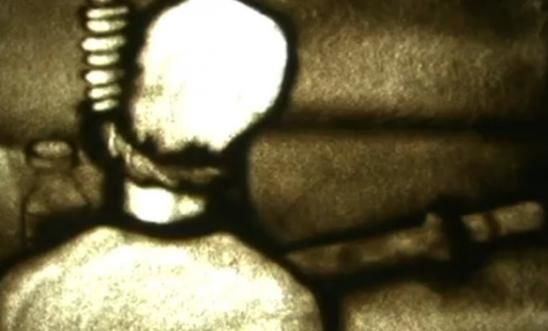
Press releases
Egypt: eight men sentenced to death following torture is latest 'affront to justice'

Eight men sentenced to death by military court after tortured 'confessions', with another 18 receiving lengthy jail terms
Defendants had been whipped with a burning cloth into 'confessing' to firearms and other offences
An Egyptian military court has sentenced eight individuals - all civilians - to death and another 18 to lengthy prison terms, after a grossly unfair military trial that relied on “confessions” extracted under horrific torture, including defendants being whipped with a burning cloth, said Amnesty International.
The 26 men had faced charges that included belonging to a banned group (the Muslim Brotherhood), possession of firearms and explosives, and obtaining classified military information without authorisation. Nineteen of the defendants were present in court, with the remaining seven tried and convicted in absentia. Of the eight sentenced to death yesterday, six were present. Under Egyptian law, the president has to ratify executions within 60 days of the verdict.
Egyptian security forces arrested the 19 men who stood trial in person between 28 May and 7 June 2015, and held them incommunicado in military intelligence detention centres for up to 46 days. Amnesty has established that 18 of the defendants were held in the Military Intelligence headquarters in Nasr City, Cairo, while one was taken to the notorious al-Azouly military prison inside al-Galaa Military camp in Ismalia.
During their unacknowledged detention, military intelligence officers subjected the men to electric shocks (including to their genitals), whipping and burning. Lawyers and relatives told Amnesty that as a result the men bore torture marks all over their bodies. According to lawyers present at the trial, each of the men told the court about the torture, requesting that their claims be formally referred to a forensic authority - however the request was ignored.
Meanwhile, the men's families told Amnesty that during the period when their relatives had disappeared they'd searched police stations, prisons and prosecutor offices but the authorities had denied they were in custody. The families also sent telegrams to the Public Prosecutor, the Minister of the Interior and the Minister of Justice, but received no response. Most of the families in fact only found out that the detainees were in military custody on 10 July 2015, when they saw a Ministry of Defence video on television claiming that security officials had arrested “the most dangerous terrorist cell” in Egypt. The video included footage of detainees “confessing” to belonging to banned groups and attacking military institutions.
Amnesty has seen the eight-page testimony of the intelligence officer who prepared the case against the men. The court asked the officer 68 questions - including about the circumstances of the arrest of the defendants, evidence against the defendants and their relationship with each other. The officer responded to at least 60 of the questions saying either “I don’t remember” or “everything is documented in the official investigations of the case”.
Amnesty International Middle East and North Africa Deputy Director Magdalena Mughrabi-Talhami said:
“This verdict is an affront to justice and must be quashed immediately.“The Egyptian authorities must conduct an independent investigation into the incommunicado detention and torture of the defendants and bring those responsible to justice.”
Egyptian courts - civilian and military - have handed down hundreds of death sentences to defendants convicted of “terrorism” and other charges related to political violence that followed former president Mohamed Morsi’s ousting in July 2013. At least seven men were executed last year in relation to the violence: one on 7 March after an unfair trial, with another six hanged on 17 May after being sentenced to death following a grossly unfair trial in front of a military court despite evidence that military intelligence officers had tortured them into “confessing” to capital offences and falsified their arrest dates in official documents.